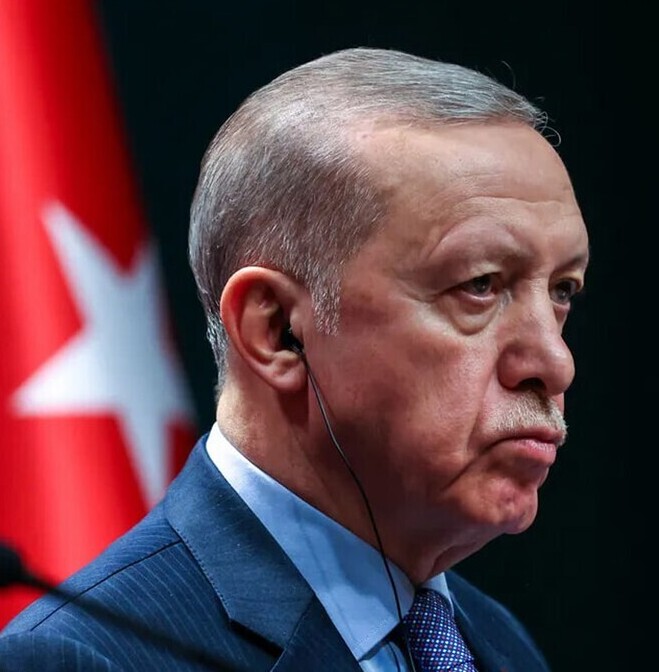SAEDNEWS: The Turkish government, by fully supporting Syrian armed opposition groups, has positioned itself in a situation beyond its capacity—one that could escalate regional tensions and lead to conflict between Turkey and the United States.

According to SAEDNEWS, citing ISNA, an American analytical media outlet reported in an article that the Turkish government's support for armed groups, led by Hay'at Tahrir al-Sham, which have gained control in Syria, reflects overconfidence on Ankara's part and could pose the risk of further instability in the region.
Sinan Ciddi, a senior Turkey analyst at the Foundation for Defense of Democracies think tank, recently wrote in Foreign Policy that Turkey might have overextended itself in Syria. Referring to the rapid progression of events, he stated that it appears Turkish President Recep Tayyip Erdoğan is aiming to dominate Syria's political future, competing with Moscow and Tehran in this endeavor.
This analyst, in a recent article published on the U.S.-based analytical platform 1945, stated that even the phrase "playing with fire" falls short of describing Erdoğan's actions in Syria. He argued that these actions should deeply concern the new administration of Donald Trump in the U.S., as Erdoğan likely intends to position Turkey as part of the solution to Syria's problems. This, however, could pose a significant risk of escalating instability in the region.
Turkey's Support for Hay'at Tahrir al-Sham
According to this report, Ankara appears to be preparing Hay'at Tahrir al-Sham (HTS) to take power in Syria. Turkey portrays the group as an organization capable of establishing a bureaucratic state, maintaining law and order, and serving Syria’s diverse population. For this reason, Ankara, a NATO member, has reportedly proposed providing military support to HTS.
The possibility of a NATO member supporting a group like HTS is controversial, given its historical ties to al-Qaeda and its leaders' opposition to Israeli occupation—positions that contrast with those of most NATO members. The analyst argues that Erdoğan aims to shape HTS's mechanisms under the leadership of Abu Mohammad al-Jolani to align with his vision. Erdoğan’s ultimate goal is said to be the elimination of the autonomous Kurdish region in northern Syria.
This region, controlled by the Syrian Democratic Union Party (PYD) and the Syrian Democratic Forces (SDF), is backed by the United States but seen by Ankara as a serious threat to Turkey’s national security.
Domestic Objectives
Sinan Ciddi, an assistant professor of "Security Studies" at the United States Marine Corps University, suggests that Erdoğan's intensified pressure on the Kurds is aimed at diverting Turkish citizens' attention from his government's economic failures. Reports indicate that Turkey currently has between 16,000 to 18,000 armed forces in Syria and is mobilizing troops along the border near Kobani (Ayn al-Arab) to dismantle the control of the Syrian Democratic Union Party and the SDF.
The analyst also speculates that Erdoğan may resettle some of the Syrian refugees currently in Turkey in this region to establish a buffer zone.
What Will Trump Do?
Trump, who won this year’s U.S. presidential election in November and will enter the White House early next year, recently described Erdoğan’s actions as “unfriendly.” According to the analyst, Trump might completely ignore the Syrian issue and prioritize domestic matters in the U.S. Alternatively, he could use Syria as leverage against Russia and Iran to end the war in Ukraine and reduce tensions between Tehran and Tel Aviv.
Abandoning Syria’s Kurds
The report highlights the conflict between the U.S. and the West regarding their support for Kurdish allies in Syria and Ankara’s stance, describing the labeling of Kurdish forces in Syria as terrorists as inappropriate.
It states: "A simple agreement on security guarantees between Erdoğan and the leaders of the Syrian Democratic Union Party could address Turkey’s concerns."
According to the analyst, excluding the Kurds from Syria’s future could lead to increased instability. The report notes: "Turkey’s war against the SDF not only destabilizes the region but also creates an opportunity for ISIS to reorganize and launch a new campaign to establish its caliphate."
Sinan Ciddi emphasizes that Erdoğan’s overconfidence and aggressive strategy carry significant risks, posing dangers not just for Syria but for the entire region. Ignoring these risks could lead to long-term, irreversible consequences.

